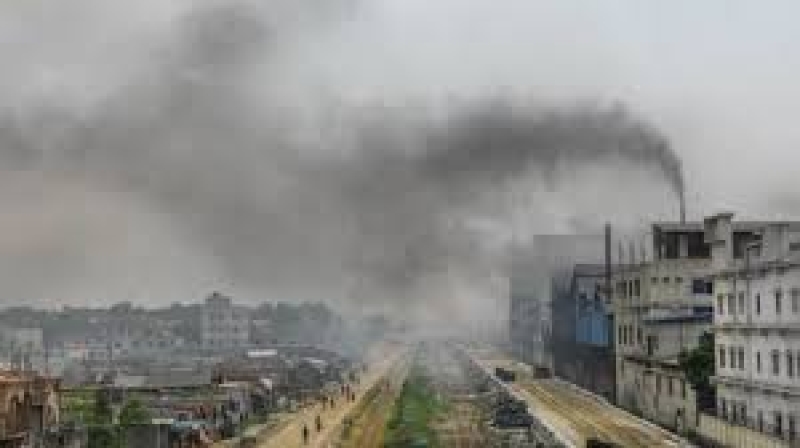- Stay alert against election conspiracies: Tarique Rahman |
- BNP's extended meeting held in Capital Dhaka |
- Khaleda urges ‘ironclad unity’ to defend mass uprising gains |
- GCF Board Approves Funding of $868.8m for Projects |
- UNRWA Report 161 on the Crisis in Gaza Strip and West Bank |
Dhaka’s air unhealthy on Friday morning

Dhaka, the overcrowded capital city of Bangladesh, has ranked the fourth on the list of cities with the worst air quality with an AQI score of 186 at 9:10am this morning (February 28, 2025).
Today’s air was classified as ‘unhealthy’, referring to a health threat to residents, according to the AQI index.
The unhealthy air quality continued for the second consecutive day on Friday.
When the AQI value for particle pollution is between 50 and 100, air quality is considered ‘moderate’, usually sensitive individuals should consider limiting prolonged outdoor exertion, between 101 and 150, air quality is considered ‘unhealthy for sensitive groups’, between 150 and 200 is ‘unhealthy’, between 201 and 300 is said to be 'very unhealthy', while a reading of 301+ is considered 'hazardous', posing serious health risks to residents.
Nepal’s Kathmandu, China’s Beijing and India’s Mumbai cities respectively occupied the first, second, and fourth spots on the list, with AQI scores of 224, 190 and 189 respectively.
The AQI, an index for reporting daily air quality, informs people how clean or polluted the air of a certain city is and what associated health effects might be a concern for them.
The AQI in Bangladesh is based on five pollutants: particulate matter (PM10 and PM2.5), NO2, CO, SO2, and ozone.
Dhaka has long been grappling with air pollution issues. Its air quality usually turns unhealthy in winter and improves during the monsoon.
As per World Health Organization (WHO), air pollution kills an estimated seven million people worldwide every year, mainly due to increased mortality from stroke, heart disease, chronic obstructive pulmonary disease, lung cancer, and acute respiratory infections, reports UNB.

